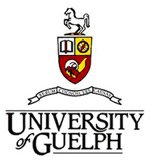Advancing the state of medical knowledge and clinical practice has been part of Alpha Healthcare’s DNA since the company opened its first medical lab in 1971. Despite the accelerating pace of new developments in disease prevention, diagnosis and treatment – and the pressure on practitioners to do more with less due to the aging population and constrained funding – Alpha remains firmly committed to its mission of Advancing Healthcare for All.
Recognizing that the burgeoning field of information technology offered new possibilities for improving the quality of patient care and enhancing healthcare outcomes, in 2000 Alpha created Alpha IT – a division of the company focused on conducting information technology research and developing innovative software solutions to contemporary healthcare challenges.
Our Approach
Leveraging the diverse insights of its multidisciplinary R&D team.
To achieve its mission, Alpha has assembled an unrivalled team of 35 in-house researchers, many of whom hold Doctorate or Masters degrees in such diverse fields as computer science, business administration, engineering, chemistry and clinical research. These research personnel are actively engaged in both basic research and applied research.
Following a disciplined methodology that begins with basic research.
Every basic research project Alpha undertakes arises from the observation of an unmet need or
opportunity to enhance the practice of healthcare.
After rigorously defining the problem and proposing conceptual solutions, we review the literature and
assemble the mathematical and computer science tools needed to solve the problem.
In an iterative manner, we evaluate each conceptual solution and collect relevant data, conduct simulations
and then revise our solution until we arrive at a working, validated prototype.
Conducting all research activity in Canada, not overseas.
Alpha has always been deeply committed to expanding the capabilities of healthcare researchers here in Canada. Rather than reaping potential cost-savings from contracting overseas personnel to conduct our research activities, we hire the best and brightest new talent here at home, then offer these individuals the opportunity to expand their knowledge and skills by working alongside the most experienced minds in healthcare research.
Our Research
The following research studies have been presented at international conferences and published in conference proceedings:

Download (PDF)
Monitoring Resistance Profiles of Oral Agents Used in the Treatment of Urinary Tract Infections, as Determined by the Novel Weighted-Incidence Syndromic Combination Antibiogram (WISCA) Resistance (WISCA-R) Profiling Method: A Four-Year Study
Conference: ASM Microbe 2022 – Washington, DC, USA, June 09-13, 2022

Download (PDF)
Resistance Profiles of Oral Agents Used in the Treatment of Urinary Tract Infections as Determined by the Novel Weighted-Incidence Syndromic Combination Antibiogram (WISCA) Resistance (WISCA-R) Profiling Method, and Comparison to Previous WISCA-R Findings
Virtual Conference: World Microbe Forum 2021 (ASM Microbe-FEMS 2021), June 20-24, 2021

Download (PDF)
Novel Weighted-Incidence Syndromic Combination Antibiogram (WISCA) Resistance (WISCA-R) Profiling of Oral Agents Commonly Used in the Treatment of Community Urinary Tract Infections, and Comparison to Previous WISCA-R Findings
Virtual Conference: ASM Microbe 2020 (ASMGM-ICAAC 2020), July 24-28, 2020

Download (PDF)
Construction of Weighted Incidence Syndromic Combination Antibiogram (WISCA) Resistance Profiles of Oral Agents Tested against Community Urinary Isolates, and Comparison to Physician Empiric Choice
Conference: ASM Microbe 2019 (ASMGM-ICAAC 2019), San Francisco, CA, USA, June 20-24, 2019
 Download
(PDF)
Download
(PDF)
Determination of Oral Antimicrobial Agents with the Lowest Resistance Rates among Community Urinary Isolates
Conference: ASM Microbe 2018 (ASM-ICAAC 2018), Atlanta, GA, USA June 07-11, 2018
 Download
(PDF)
Download
(PDF)
Antimicrobial Resistance of Urinary Isolates from Non-Hospitalized Pregnant Women
Conference:ASM Microbe (ASM-ICAAC), New Orleans, LA, USA, June 01-05, 2017
 Download
(PDF)
Download
(PDF)
Fosfomycin Has the Lowest Resistance Rate among Oral Antimicrobial Agents Tested against Community Uropathogens
Conference:ASM Microbe (ASM-ICAAC), Boston, MA, USA June 16-20, 2016
 Download
(PDF)
Download
(PDF)
Antimicrobial Resistance of Urinary Gram-Negative Bacilli Recovered from Pregnant Patients
Conference: American Society for Microbiology General Meeting, Boston, MA, USA, May 2014
Tracking Methicillin-Resistant Staphylococcus aureus among Community Clinical Isolates: A Five-Year Study
Conference: American Society for Microbiology General Meeting, Denver, CO, USA, May 2013
Increasing Rates of Extended-Spectrum Beta-Lactamase (ESBL) Producing Strains among Community Urinary Isolates and Impact of Patient Age on ESBL Prevalence and Resistance Rates: A Five-Year Study
Conference: American Society for Microbiology General Meeting, San Francisco, CA (USA), June 2012
Prevalence of Multidrug-Resistant Gram-Negative Bacilli (MDR-GNBs) among Community Urinary Isolates and Impact of Patient Age on MDR-GNB Prevalence and Resistance Rates
Conference: American Society for Microbiology General Meeting, New Orleans, LA (USA), May 2011
Prevalence of Antimicrobial Resistance of Community Urinary Isolates against First-line Antimicrobial Agents Commonly Used in the Treatment of Uncomplicated Urinary Tract Infections, and Impact of Age on Resistance Rates
Conference: American Society for Microbiology General Meeting, San Diego, CA (USA), May 2010
Enhanced Recovery of Low-Inoculum Methicillin-Resistant Staphylococcus aureus (MRSA) by the Novel Flocked ESwab Compared to a Conventional Swab, the M40 Transystem
Conference: American Society for Microbiology General Meeting, Philadelphia, PA (USA), May 2009
Evaluation of a Novel Swab Transport System for Maintaining Viability of Anaerobes and Impact of Using Different Inoculum Broths
Conference: American Society for Microbiology General Meeting, Boston, MA (USA), June 2008
Frequency of Resistance of Community Isolates of Group B Streptococcus to Clindamycin and Erythromycin, and Impact of the D-test
Conference: American Society for Microbiology General Meeting, Toronto (Canada), May 2007
In Vitro Activity of Fosfomycin and Other Commonly Used Oral Antimicrobial Agents against Urinary Isolates of AmpCPhenotype versus Extended-Spectrum β-Lactamase (ESBL)-Producing Community Strains of Escherichia coli
Conference: American Society for Microbiology General Meeting, Orlando, Florida (USA), May 2006
In Vitro Resistance of Extended-Spectrum (ESBL) versus AmpC-Phenotype (AmpC) β-Lactamase-Producing Escherichia coli Urinary Isolates against Six First-line Oral Antibiotics Commonly Used for Community-Acquired Urinary Tract Infections
Conference: American Society for Microbiology General Meeting, Atlanta, GA , USA, June 2005
Susceptibilities of Urinary Tract Isolates of Extended-Spectrum (ESBL) and AmpC-Type (AmpC) b-Lactamase-Producing Escherichia coli (E. coli) against Six First-line Oral Antibiotics Commonly Used for Community-Acquired Urinary Tract Infections (UTIs)
World Conference on Dosing of Anti-infectives, Nuremberg, Germany, September 2004
The following research studies have been presented at international conferences and published in conference proceedings:
Evaluation of Predictive Learners for Cancer Incidence and Mortality
By: Smita Kachroo, William W. Melek University of Waterloo, Alpha Global IT Toronto, Canada
Integrating Semantic Medical Entity Relations for Disease Prediction Using SNOMED-CT Terminology
By: Mariam Daoud, Jimmy Xiangji Huang, William Melek and Joseph Kurian
A Time Series Based Method for Analyzing and Predicting Personalized Medical Data
By: Qinwin Vivian Hu, Xiangji Jimmy Huang, William Melek, and C. Joseph
Kurian.
Information Retrieval and Knowledge Management Research Lab York University; Alpha Global IT,
Toronto, Canada
A Semantic Feature Space for Disease Prediction
By: Mariam Daoud, Jimmy Xiangji Huang, William Melek, C. Joseph Kurian
Information Retrieval and Knowledge Management Research Lab School of Information Technology,
York University,Toronto, Canada
Our Partnerships



While Alpha possesses a wealth of internal expertise, it actively engages in strategic partnerships with leading academic institutions to explore new frontiers in health science. Presently, Alpha has research agreements in place with three leading universities, namely the University of Waterloo, York University and the University of Guelph. In each case, a mix of undergraduate and graduate students, post-doctoral students and professors spend significant time each week working on projects at Alpha Healthcare. Earlier academic partners included the University of Toronto and Ryerson University.
Patents and Projects
Over the past decade, Alpha Healthcare has been actively working on a range of projects – many involving Artificial Intelligence (AI) and Artificial Neural Networks (ANN) – to help advance the quality of care provided by physicians, and improve the efficacy and efficiency of the broader healthcare system.
The company’s research strength is borne out by the fact that it holds two patents and two certified industrial designs (in Canada and internationally); have another five projects at the patent application stage; and are actively exploring several other leading-edge fields of inquiry that will significantly enhance disease treatment protocols and everyday clinical practice.













